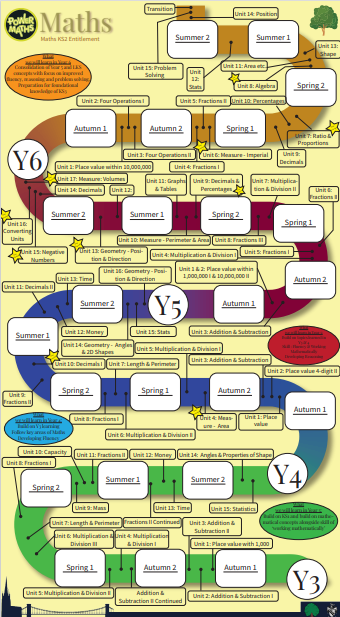Maths
The National Curriculum for Maths aims to ensure that all children:
-
become fluent in the fundamentals of mathematics, including through varied and frequent practice with increasingly complex problems over time, so that pupils develop conceptual understanding and the ability to recall and apply knowledge rapidly and accurately.
-
reason mathematically by following a line of enquiry, conjecturing relationships and generalisations, and developing an argument, justification or proof using mathematical language.
-
can solve problems by applying their mathematics to a variety of routine and non-routine problems with increasing sophistication, including breaking down problems into a series of simpler steps and persevering in seeking solutions.
At Beechview Academy, these skills are embedded within Maths lessons and developed consistently over time. We understand the importance of mathematics in everyday life; it is critical to science, technology and engineering, and necessary for financial literacy and required in most forms of employment. A high quality mathematics curriculum, therefore, provides a foundation for understanding the world, the ability to reason mathematically, an appreciation of the beauty and power of mathematics and a sense of enjoyment and curiosity about the subject. Our students will leave Beechview with the ability to be independent mathematicians; able to confidently access the world with a strong mathematical understanding. They will be resilient and persistent in developing their maths skills and curious to solve open-ended maths investigations and questions as they access the next stage of their education.



To ensure whole school consistency and progression, the school uses the DfE approved ‘Power Maths’ scheme, which is fully aligned with the White Rose Maths scheme. New concepts are shared within the context of an initial related problem, which children are able to discuss in partners. This initial problem-solving activity prompts discussion and reasoning, as well as promoting an awareness of maths in relatable real-life contexts that link to other areas of learning. Children are encouraged to solve problems each day through the use of concrete resources, pictorial representations and abstract thinking (the C-P-A approach). This helps children tackle concepts in a tangible and more comfortable way.

